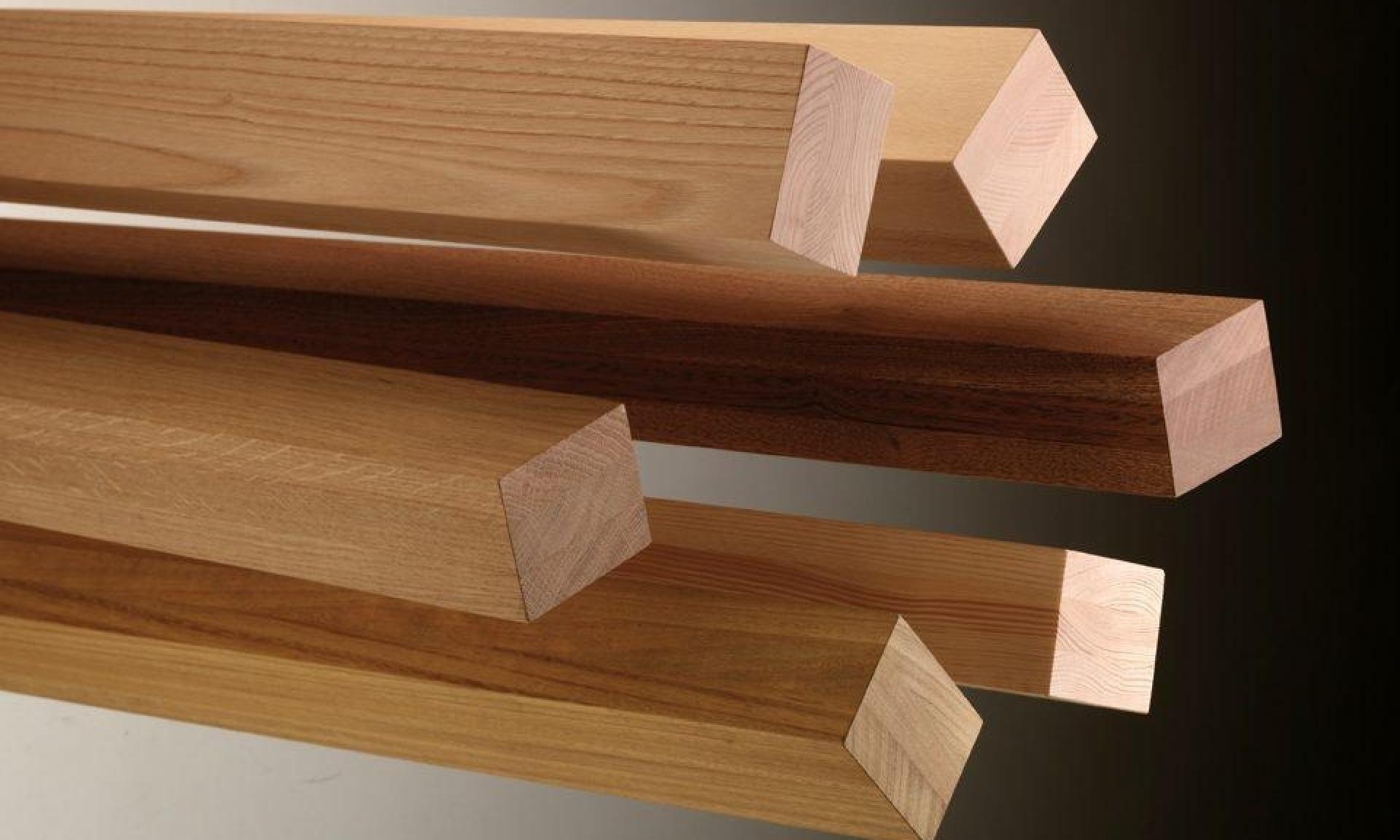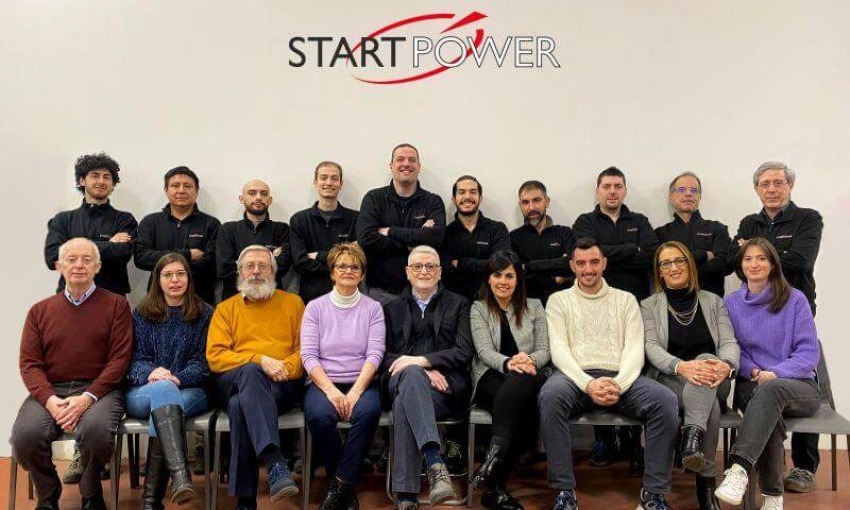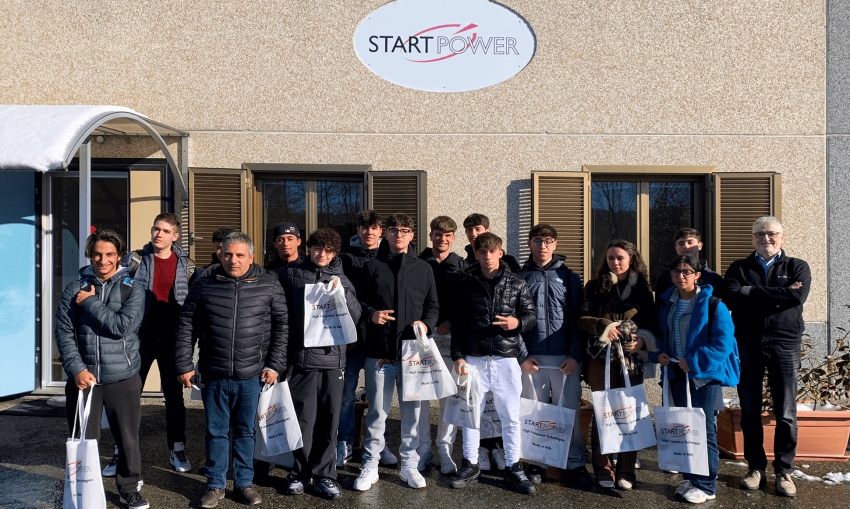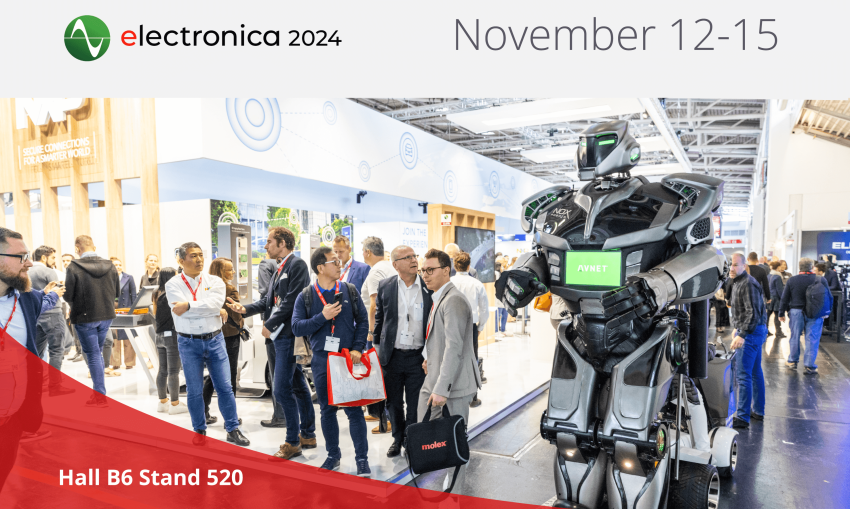
Laminated elements for windows and straight laminated beams for building constructions can be effectively produced using special presses with high frequency (HF) heating.
Through the "stop and go" working process it is possible to produce great length elements in successive cycles, being the only limiting element the open time of the glue.
A typical example is the production of beams up to 15-20 m long using a 5 m long press in 3-4 successive cycles.
The working widths normally reach up to 1300 mm and the thickness from 70 to 220 mm.
Normally HF generators in power range from 50 to 150 kW are used (up to 60 kW with forced air cooling, as well as with liquid cooling).
Plant structure and crucial steps of the process with high-frequency presses.
The press is equipped with side pushing system of approx. 10-15 Kg/cm2 having the function of gluing, and an upper pressure platen of approx. 2 Kg/cm2, having the sole function of aligning the slats.
The upper and lower platens have the function of HF electrodes.
Particular attention must be paid to both lateral and upper insulation, in order to avoid dispersions and non-optimal yields, in addition to perimeter shielding in order to avoid the propagation of electromagnetic waves.
The typical plant consists of:
• a loading system with application of the glue on the upper part of the slats.
• a 90° slat overturning system with pre-composition phase upstream of the press.
• a pre-composition table, as long as the longest elements, equipped with a slat conveyor system with catenary.
• a press with loading and unloading from the narrow side, equipped with a motorized conveyor belt.
• an HF generator normally placed at the side of the press, in the immediate vicinity.
• an unloading conveyor with idle or motorized rollers.
Glues and environmental benefits of the high-frequency process.
The glues normally used are PVA (vinyl) or MUF (melamine urea formaldehyde) type, applied in quantities between 150 and 250 gr/m2.
The wood to be glued must have a humidity degree of 8-12% and the lamellas must be planed in a moulder.
The production capacity can reach 15-30 m3/8h with the use of 1-2 people depending on the degree of automation.
The high-frequency system has the advantage of greatly speeding up gluing times with significant energy savings, given that the system acts exclusively on the glue lines, without heating the material and thus also avoiding any possible deformation of the same.
_edbd8f3009_.jpg)





